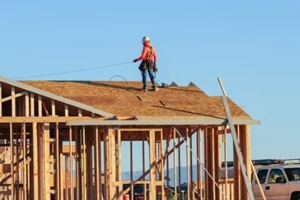
When home builders hire subcontractors to handle specialized work such as electrical, plumbing, or framing, insurance coverage can get complicated. Who is responsible for payment if a subcontractor damages property or sustains an injury on your job site? The answers depend on your policy terms, state regulations, and contractual agreements.
This article explains what coverage typically exists, common gaps builders and subcontractors need to know, and actionable tips to protect your business and projects.
Typical Coverage Provided by Home Builders Insurance
Home builders insurance generally covers three key areas: general liability, builder’s risk, and workers’ compensation coverage. Each plays a distinct role in safeguarding construction projects.
- General liability insurance offers protection against bodily injury and property damage to third parties that may happen during construction. According to the U.S. Small Business Administration, this coverage “protects against financial loss as the result of bodily injury, property damage, medical expenses, libel, slander, defending lawsuits, and settlement bonds or judgments.”
- Builder’s risk insurance protects the structure under construction, materials, and equipment at the jobsite. This policy typically covers theft, fire, vandalism, and certain weather-related damage. However, coverage for subcontractors’ materials often depends on specific policy language.
- Workers’ compensation ismandated in most states for businesses that have employees. According to the National Association of Insurance Commissioners(NAIC), this insurance “protects a business owner from the employer’s statutory obligation to provide coverage for its employees who experience a work-related injury or illness on business premises or due to business operations.” The question of whether subcontractors are covered depends on worker classification and state law.
Common Coverage Gaps
One of the biggest mistakes home builders make is assuming their insurance automatically covers all subcontractors. In most cases, it does not.
A general liability policy may cover damage caused by a subcontractor’s work, but it typically will not cover the subcontractor’s own injuries or damage to their equipment. Similarly, builder’s risk policies often exclude subcontractors’ tools and materials unless specifically added.
Workers’ compensation coverage presents another challenge. If a subcontractor fails to maintain their own insurance policy, you could be responsible for any injuries sustained by that subcontractor’s employees. Many states apply a “statutory employer” rule, making general contractors accountable for workers’ comp claims when subcontractors lack coverage.
The Occupational Safety and Health Administration (OHSA) holds general contractors accountable for safety on multi-employer construction sites. This responsibility can extend your liability beyond what insurance covers, making verification of subcontractor insurance even more important.
Actionable Tips to Protect Your Business
1. Request Certificates of Insurance

Before any subcontractor starts work, obtain a current Certificate of Insurance showing they carry general liability and workers’ compensation coverage. Confirm the policy is active by verifying the certificate with the insurance carrier. According to the NAIC, it is recommended to “make sure you understand the definition of ‘employee’” and verify coverage for all workers, including subcontractors.
2. Establish Clear Contractual Obligations
Agreements with subcontractors should clearly define the minimum required amounts and types of insurance coverage. The majority of experts suggest that a minimum of $1 million in general liability coverage should be mandatory. Include language requiring subcontractors to maintain insurance throughout the project and provide updated certificates if policies renew. Note: Noting and tracking expiration dates of COIs can be beneficial here, too.
3. Be Designated as Additional Insured
Have your company listed as an additional insured on the subcontractor’s general liability insurance policy. This means their policy will respond to claims against you arising from their work, providing an extra layer of protection and helping preserve your insurance limits.
4. Verify Worker Classification
Proper classification as an employee or an independent contractor affects both legal compliance and insurance coverage. The National Federation of Independent Business provides guidance on worker classification to help small businesses avoid penalties and unexpected liability.
When Blanket Coverage Makes Sense
Some home builders purchase blanket coverage that includes all workers on a jobsite, regardless of who employs them. This approach simplifies insurance management and provides protection when subcontractors have inadequate coverage. While more expensive than standard policies, blanket coverage can prevent significant out-of-pocket expenses if claims arise. Note: This option works well for builders who regularly work with smaller subcontractors or on high-risk projects.
The Financial Risk of Inadequate Coverage
If a subcontractor is injured on your jobsite and lacks workers’ compensation insurance, you could be responsible for all medical bills, lost wages, and legal fees. These expenses often surpass $100,000, and claims for property damage can accumulate rapidly as well. If a subcontractor causes a fire or damages neighboring property, your business could encounter lawsuits and financial losses if coverage proves insufficient.
Beyond direct costs, inadequate insurance damages your reputation and makes it more difficult to secure future contracts. For this reason, many property owners and lenders require proof of comprehensive coverage before approving projects.
Get Personalized Solutions with Burton & Company Today

A one-size-fits-all approach does not work for subcontractor coverage. Every homebuilding business experiences different risks based on project size, subcontractor relationships, and the types of work performed. An experienced insurance agent can help you obtain the right coverage for your needs.
At Burton & Company, we help home builders throughout Virginia secure proper coverage for their operations. Our team knows the complexities of subcontractor insurance and can review your current policies, identify gaps, and recommend solutions that provide comprehensive protection.
Let’s discuss your insurance needs and make sure your business is fully protected. Contact Burton & Company online or call (888) 652-1325 to schedule a consultation.

